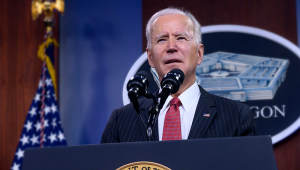By Nick Mann | 25 April 2012
The UK needs to ensure its support for overseas elections has long-term benefits and should seek alternatives to the United Nations to channel the aid, the Independent Commission for Aid Impact said today.
More than 70% of the £197m the UK spent on overseas elections assistance between 2001 and 2011 went through the UN Development Programme, but the watchdog said it should ‘actively cultivate’ alternative delivery channels to complement its work with the UN agency.
While the UNDP has shown it can deliver ‘technically sound’ support for elections, it does not have a strong culture of cost-control and tends to support ‘over-complex’ solutions and technologies, it said.
It also prioritises the direct delivery of a particular election ahead of long-term development of a country’s capacity to manage elections over a complete electoral cycle. This, the ICAI said, was contrary to both UK and UN policy.
Overall, the UK’s spending on elections through the UNDP was rated ‘green-amber’. This means it meets most of the watchdog’s criteria for effectiveness and value-for-money and is performing well, but some improvements should be made.
The UK Department for International Development was urged to ‘immediately engage’ with the UN at both central and local levels to improve performance. It should encourage the UN to resolve the different in approach to elections between UN agencies.
It should also place more emphasis on ensuring value-for-money and improve cost-control of electoral programmes by better identifying the costs of various aspects of electoral systems in different countries.
And it should strengthen governance arrangements over UNDP-managed programmes. More use should be made of third-party monitoring to challenge and hold the UN agency to account for performance. Programmes should also be maintained through the electoral cycle ‘where possible’, it added.
ICAI chief commissioner Graham Ward said that, as well as helping to promote democracy, UK aid for elections also helped to mitigate the risks of conflict and political crisis often associated with elections in developing countries. Building stable democracies also supported better development.
‘There are, however, tensions between the imperative to deliver specific elections successfully and the goal of long-term capacity building. A number of our case studies, including in Afghanistan, Burundi and Malawi, showed that the UNDP prioritised the delivery of the immediate goal over the long-term strategy,’ he said.
An exception to this was Bangladesh, where better capacity-building outcomes had been achieved. ‘The DFID needs to consider more carefully how to balance these two goals,’ he added.
International Development Secretary Andrew Mitchell welcomed the report’s recognition that Britain and the UN were together helping millions to exercise their democratic rights, as well as reducing the threat of conflict and building more ‘open and tolerant’ societies.
‘Following our own multilateral aid review last year, we are already working closely with the UNDP to ensure their projects are well planned and deliver consistent value for money, especially in fragile and conflict-ridden states.
‘I fully support the commission’s findings and will continue to work with the UN to implement them,’ he added.












